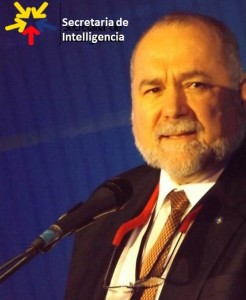How to explain the KGB’s amazing success identifying CIA agents in the field?
Paranoid CIA heads blamed Soviet moles, but the real reason for the repeated disasters was much simpler
“Totrov Rules” and comment below the line.
EXTRACT:
Thus one productive line of inquiry quickly yielded evidence: the differences in the way agency officers undercover as diplomats were treated from genuine foreign service officers (FSOs). The pay scale at entry was much higher for a CIA officer; after three to four years abroad a genuine FSO could return home, whereas an agency employee could not; real FSOs had to be recruited between the ages of 21 and 31, whereas this did not apply to an agency officer; only real FSOs had to attend the Institute of Foreign Service for three months before entering the service; naturalized Americans could not become FSOs for at least nine years but they could become agency employees; when agency officers returned home, they did not normally appear in State Department listings; should they appear they were classified as research and planning, research and intelligence, consular or chancery for security affairs; unlike FSOs, agency officers could change their place of work for no apparent reason; their published biographies contained obvious gaps; agency officers could be relocated within the country to which they were posted, FSOs were not; agency officers usually had more than one working foreign language; their cover was usually as a “political” or “consular” official (often vice-consul); internal embassy reorganizations usually left agency personnel untouched, whether their rank, their office space or their telephones; their offices were located in restricted zones within the embassy; they would appear on the streets during the working day using public telephone boxes; they would arrange meetings for the evening, out of town, usually around 7.30 p.m. or 8.00 p.m.; and whereas FSOs had to observe strict rules about attending dinner, agency officers could come and go as they pleased.

ROBERT STEELE: Yuri Totrov made his name in the Far East in the 1950's, where he excelled at identifying CIA people in Japan especially, under US Army cover. I got to know him when he spoke at one of my conferences on open source exploitation in support of counterintelligence, and he showed me, with actual historical directories in the archives at the US Army War College, precisely how easy it was to isolate the anomalous positions. The article over-all is great but could be improved in two respects: first, the loss of our many deep cover people in Russia came from our sloppy procedures at home, in HQS, where a brand new case officer enroute to Moscow was allowed to know true names, and where Ames, a known drunk and discontent, was assigned the most sensitive role in Soviet Division, precisely because CIA refuses to respect counterintelligence.
As far as all the CIA officers easily outed overseas because of their in and out schedule and the ease with which they spend money, I have said for decades that local liaison has every CIA officer and virtually every CIA agent pegged, because the CIA is *lazy* — they do not live cover, they live immunity and lack of accountability. It is also a fact that 90% of what CIA claims it has obtained through clandestine methods are foreign liaison hand-outs and legal traveler debriefings — the truly incredible unilateral operations are too few and far between, in part because CIA is not competent at direct recruiting of high-risk indigenous sources — in the Middle East, for example.
Yuri is an original, and merits respect for being very good at profiling anomalies — until we clean house in the USA and professionalize our leadership, CIA will continue to be the laughingstock of the foreign intelligence world.
See Also:
Counterintelligence @ Phi Beta Iota



